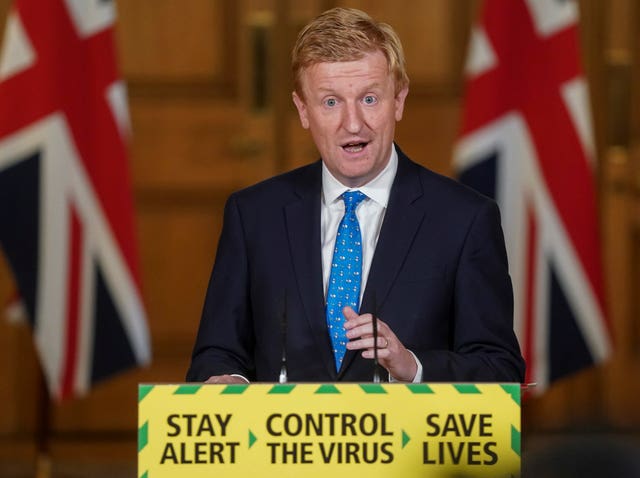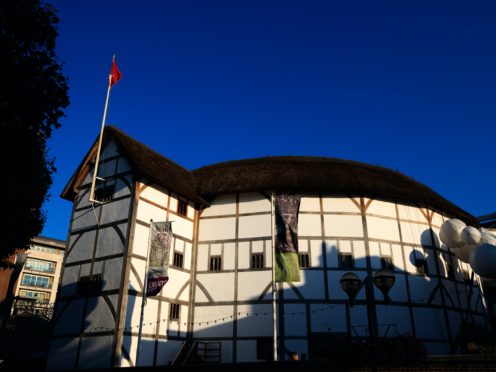The Government’s “failure” to act quickly enough to help UK arts in the pandemic could affect the sector’s position as a world leader and result in Britain becoming a “cultural wasteland”, MPs have said.
Ministers “consistently failed to recognise” the scale of the challenge to the arts and culture industry, according to a new report by MPs.
A £1.57 billion package of support for the sector came “too late” for many and there is little detail on how it will be distributed, they say.
Julian Knight, chair of the Digital, Culture, Media and Sport Committee, which published the report, told the PA news agency: “We are in danger, if we are not careful, of becoming a bit of a cultural wasteland.
“We are a world leader when it comes to culture and the damage that is being done… if it is not confidently and promptly addressed, could lead to widespread destruction of our cultural and sporting infrastructure.”

He warned of “real consequences” for the UK’s “international standing” if new measures are not introduced.
And he said in the report: “We are witnessing the biggest threat to our cultural landscape in a generation.
“The failure of the Government to act quickly has jeopardised the future of institutions that are part of our national life and the livelihoods of those who work for them.”
In their report, the MPs said it was “regrettable” it took so long for the Government’s £1.57 billion package to be announced.
“As a result, the cultural industries are likely to face mass redundancies with a lasting impact on access to the arts, careers in the creative sectors and the UK’s position as a world leader in arts and culture,” they said.
Many organisations face an “existential threat” to their survival.
Indoor performances, with socially distanced audiences, are able to resume in England from August 1.
But “telling venues they can reopen with just a few days’ or weeks’ notice does not address the lead times for performance, the challenges of social distancing or the concerns about audience behaviours”, MPs said.
The Department for Digital, Culture, Media and Sport (DCMS) has “been treated as a Cinderella by Government when it comes to spending, despite the enormous contribution its sectors make to the economy” and jobs, the report said.

On its own, the £1.57 billion “will not be enough to stop mass redundancies and the permanent closure of our cultural infrastructure”.
Uncertainty in the weeks before the support was announced “has been blamed for closures and redundancies in the cultural sector that might otherwise have been avoided”, the MPs said.
July and August are key in terms of organising Christmas seasons, the report said, which means “continued uncertainty about reopening could have devastating consequences far beyond the end of this year”.
The report said the Government’s roadmap for when theatres will reopen has been “vague and slow-coming”.
Problems were exacerbated because of the relatively small size of the DCMS and its budget, MPs said.
It has also seen a high turnover of secretaries of state in recent years, the report points out, with Oliver Dowden the ninth in the role since May 2010.
Recommendations include a “sector-specific recovery deal for performing arts”, including “clear, if conditional, timelines for reopening, and technological solutions to enable audiences to return without social distancing”.
There should also be “long-term structural support to rebuild audience figures and investment”.
Support for the self-employed should be urgently reviewed so that it covers people who have been excluded.

It also recommends extending the cut in VAT on ticket sales for theatre and live music, introducing a Music Tax Relief and extending Theatre Tax Relief to 50% for the next three years.
The report warns “cultural institutions face an uncertain future given the potential for extended or renewed closures in the face of subsequent waves of the pandemic, and changing audience habits”.
The total loss of income for UK theatre could be as much as £630 million, with many expected to close.
It has been estimated that 93% of grassroots music venues faced permanent closure.
A spokeswoman for DCMS said in a statement that the department “disagrees” committee, adding they have worked “day-in-day-out” to provide support to the sectors it oversees.
“Thousands of organisations and hundreds of thousands of jobs working across culture, the arts, sport and tourism have been saved by furloughing and loan schemes,” she said.
“Our £1.57 billion investment is the largest ever one-off cash injection into culture in this country.”
